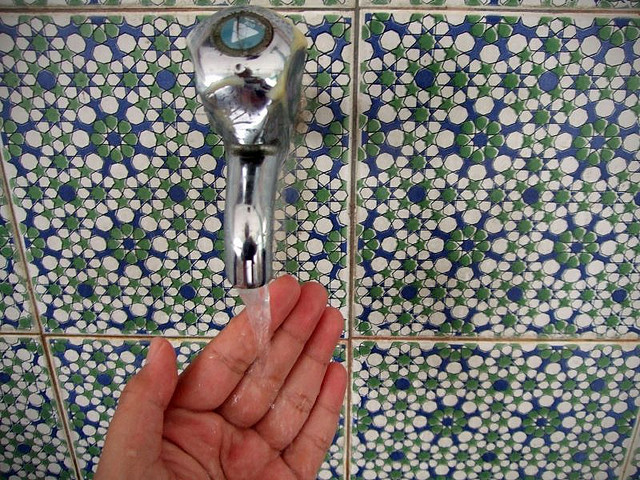
Have those who disbelieved not considered that the heavens and the earth were a joined entity, and We separated them and made from water every living thing? Then will they not believe? [Qur’an 21:30]
What a powerful verse in the Quran. All living things are made from water, and rely on water making it such a crucial part of our existence and yet we take it for granted. We forget the teaching of the Prophet (PBUH), when he directed us to be conservative with the water and not wasteful. Also, the scarcity of water on this planet is a reality the affects all of us. Let us explore your role as a Muslim on conserving water.
First let’s present some basic statistics: 75% of our planet is water. We are technically a blue planet. 97% of all the water is sea water which cannot be used for cleaning, drinking, farming, irrigation, manufacturing, etc. Of the 3% remaining freshwater 79% of it is frozen as icecaps, and 20% is groundwater. That leaves 0.0003% of the entire world water supply in rivers, lakes, etc. that can be claimed as clean, usable, and easily accessible water.
In other words, over 1 billion people do not have access to clean water. It is our duty as Muslims and human beings to protect the planet for our children and future generations. The majority of the 1 billion who suffer from not having access to clean water are in Muslim countries. Ensuring that our brothers and sisters in all parts of the world have easy access to safe drinking water is our responsibility as Muslims. The Prophet (PBUH) gave us a prime example of this by saying: “The Muslim Ummah is like one body. If the eye is in pain then the whole body is in pain and if the head is in pain then the whole body is in pain.”
How can we function if the majority of our Ummah is sick or dying?
The Prophet (PBUH) was reported to have told one of his wives, Ai’shah (RA): “The day you give water to people out of charity, and especially if it is the time when people are in dire need of water, or during the dry season when people are greatly suffering from scarcity of water, you will have the reward of one who sets a slave-girl free.”
There are several programs which help build wells in impoverished nations. These wells often last multiple decades, thus providing an entire generation within the area with clean water.
This reminds me of one of my favorite hadiths; Abu Hurairah (RA) narrated that the Prophet said, "A man felt very thirsty. While he was on the way, there he came across a well. He went down the well, quenched his thirst and came out. Meanwhile he saw a dog panting and licking mud because of excessive thirst. He said to himself, ‘this dog is suffering from thirst as I did.’ So, he went down the well again, filled his shoe with water, held it with his mouth and watered the dog. Allah appreciated him for that deed and forgave him." The Companions said, "O Allah's Messenger! Is there a reward for us in serving the animals?" He replied: "There is a reward for serving any living being." (Bukhari)
This was about an animal; imagine 1.1 billion people if not more?
That is the severity of it. But our local masjids and congregation tend to believe wudu (ritual cleaning) is related to how much water we use. Abdullah ibn Amr ibn Al-`Aas (RA) reported that the Prophet passed one day by Sa`d ibn Abi Waqas (RA) while he was performing wudu' (ritual cleaning of body parts in preparation for prayer). The prophet asked Sa`d, "Why is this wastage?" Sa`d replied "Is there wastage in wudu also?" The Prophet said, "Yes, even if you are at a flowing river." (Ahmad and authenticated Ahmad Shakir)
So what is acceptable use of water for Wudu? Sayyidinah Safinah (RA) narrated that the Prophet (PBUH) performed ablution with a mu’dd of water and the purifying bath with a sa’ of water.Jami'i at Tirmidhi
These are the teachings of the Prophet (PBUH), who was helping us avoid a disaster before it was even considered. Our brothers and sisters in Indonesia, recently lost all of their freshwater reserves, and are left drinking ditch water. The threat is real so reflect on the guidance of the Prophet in this area as it proves ever helpful and relevant.
Khaled Dardir has recently completed a Master of Science specializing in the chemistry and is currently enrolled as a student in Mishkah pursuing a bachelors in Islamic Studies. He is the founder and Chief Coordinator of the non-profit organization The Building Blocks of New Jersey whose mission is: “To aid self development, promote activism, and bolster community building”
Photo credit from deqalb

